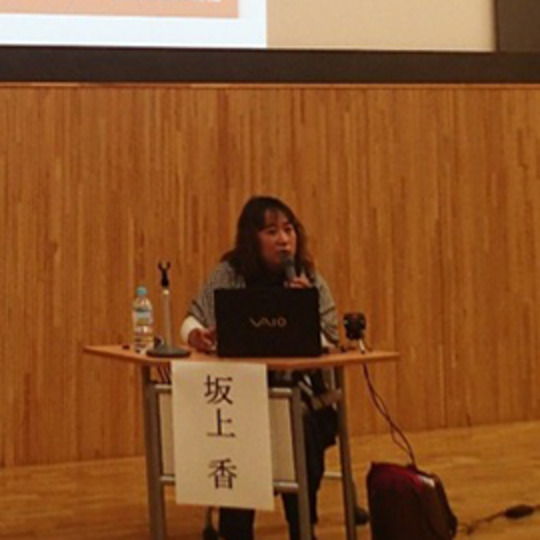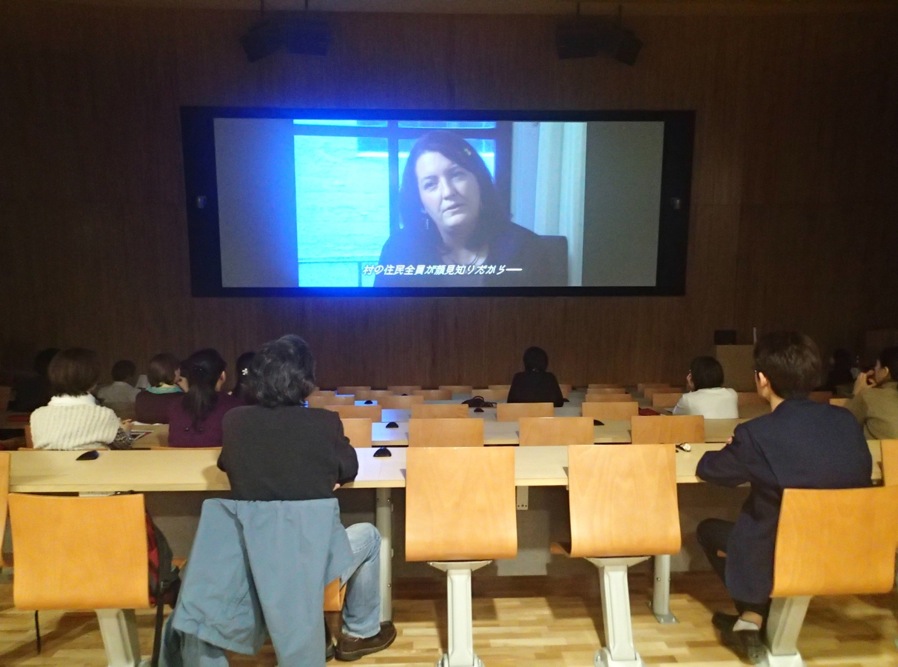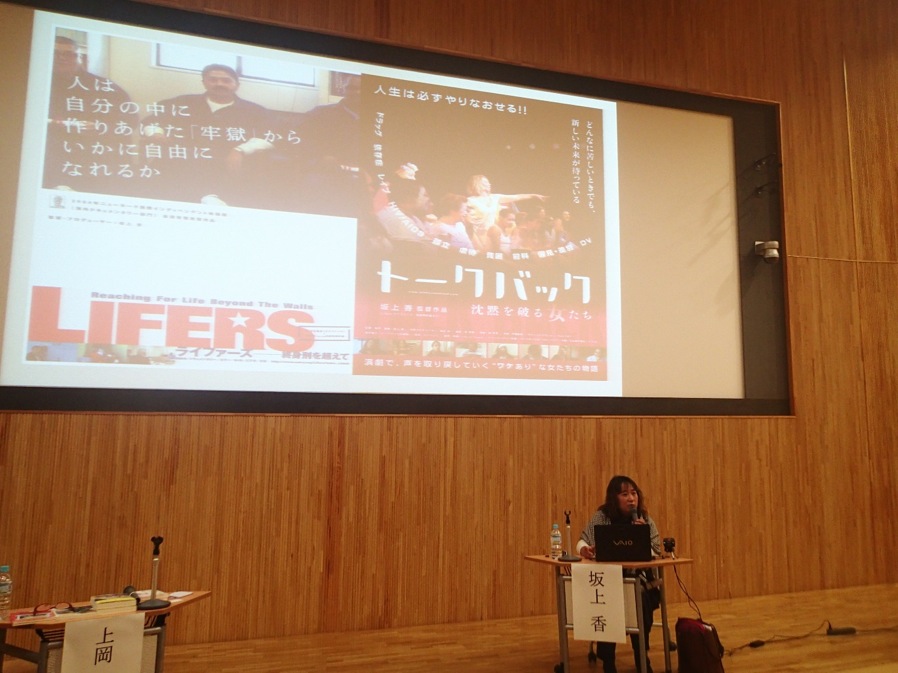
Report: “Talk Back Out Loud” Screening & Workshop Lige Bao
- Time and Date
- 14:30−17:40, Thursday, October 16, 2014
- Venue
- Fukutake Hall Learning Theater, University of Tokyo, Hongo
- Speakers
- Kaori Sakagami (Director) and Harue Kamioka (Representative of DARC)
- Organized by
- Educational Project 4 "Information and Media" Unit, Integrated Human Sciences Program for Cultural Diversity, University of Tokyo

"Talk Back Out Loud" is a documentary made by the Japanese director Sakagami Kaori. She used almost 8 years to track the life of 8 HIV-positive women who took part in a play created by The Medea Project: Theater for Incarcerated Women by Rhodessa Jones in San Francisco. The Medea Project held the vision of "arts as social activism", which means that art is useful in devising projects for solving social struggles where people may not expect its practical applicability. The documentary introduces each of the protagonists, mainly telling about how they became infected with AIDS, how they struggled with it, and how taking part in this play changes their attitude toward life. Doctor Edward Machtinger first found Rhodessa Jones in an attempt to save his female patients, since he found that they were dying of drug abuse and committing suicide instead of dying of AIDS, which indicated that most of them are killed by their isolated daily lives under the shadow of prejudice. Thus, the motive of Rhodessa was to help these women deal with these emotion issues by expressing their feeling through theatrical performance.
Although these women feel uncomfortable talking with people about their problems at the beginning, the experience of self-expression with the help of Rhodessa was like psychological purification for them. In the last part of the documentary, when you listen to their monologue, you could feel that their voices come from the bottom of their heart, impressive and touching. When you see those women standing on stairs, wearing shirt saying "I am living with AIDS" and talking about their stories in front of the audience, you know that they are no longer the lonely and hopeless individuals; they now know how to embrace their own past and break the silence.

In the following workshop, the director shared the story of how they created this documentary through building relationships with the women in this documentary, as well as how she overcame economic difficulties by increasing citizen participation. I think this great work brought to us by Ms. Sakagami will become a starting point for solving problems for those females who are still suffering in the 21th Century. Just as the title suggests, "Talk Back Out Loud" is used here as a positive word, which means that the people who are diagnosed as HIV-positive can, and should, have their own voice in the society. In Asia, we usually appreciate the virtue of enduring in silence. Yet in some cases, it cuts off opportunities for those who suffer to share their stories with other people in society. Therefore, this story is not limited to the women in US or only restricted to the women who are HIV-positive. The incarcerated women here also could refer to women who are the prisoners of their own mind. One matter worth noting is that most of the women in the documentary have experienced traumatic domestic violence and abuse by their parents or relatives when growing up. This requires us to return to the discussion of the relationship between violence suffered by women and the effects of post-traumatic stress. This discussion crosses all racial and ethnic groups, and is especially required for those women of color and minority ethnic backgrounds.
